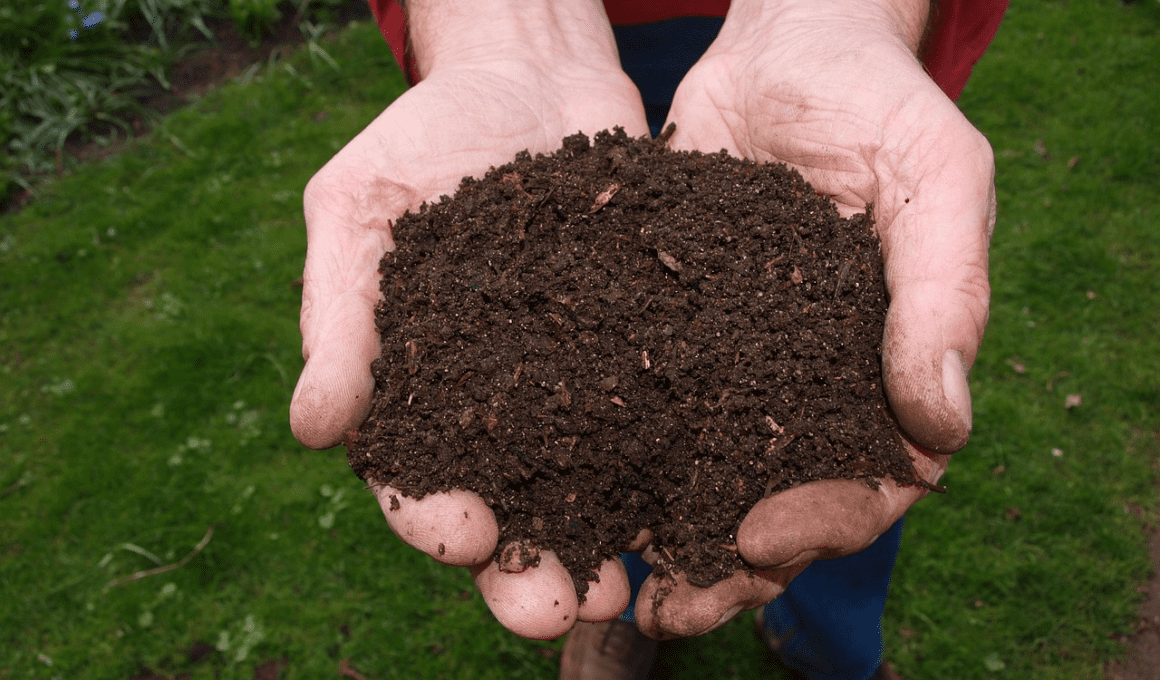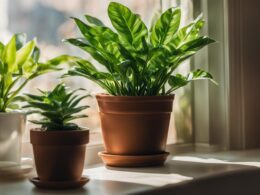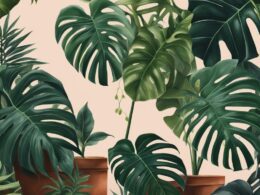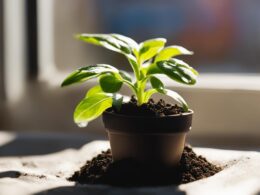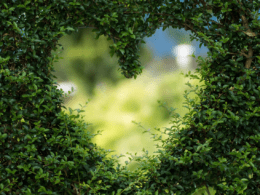Do you have a compost heap in your backyard? Are you always on the lookout for new materials to add to it? Look no further than your own rhubarb patch!
Rhubarb leaves may seem like a waste product, but they are actually a valuable addition to your compost heap. Not only are they safe and compostable, but they are also nutritious and environmentally-friendly. Adding rhubarb leaves to your compost heap can provide essential nutrients to your soil.
They are rich in nitrogen, vitamins, and moisture, and decompose quickly, especially if chopped up. However, it’s important to note that while rhubarb leaves are safe for composting, they contain harmful toxins that make them unsuitable for ingestion by pets or children. So, if you have little ones or furry friends around, be sure to keep them away from your compost heap and any rhubarb leaves you may add to it.
With that said, let’s explore the benefits of composting with rhubarb leaves and learn how to safely and effectively add them to your compost pile.
Quick Takeaways
- Rhubarb leaves are a safe and compostable addition to compost heaps, providing essential nutrients to soil.
- Composting with rhubarb leaves reduces waste, creates a nutrient-rich soil amendment, and is a sustainable and cost-effective gardening practice.
- To properly compost rhubarb leaves, balance the nitrogen to carbon ratio, mix compost often, and maintain proper moisture and heat levels.
- Rhubarb leaves are a natural source of essential nutrients, such as nitrogen, vitamins, and moisture, and are a safe and nutritious addition to compost heaps.
Can Rhubarb Leaves Be Used as Mulch for Grass Seeds?
Using rhubarb leaves as mulch for grass seeds is not recommended. While leaving hay on grass seed can provide protection and help retain moisture, rhubarb leaves contain toxic substances, including oxalic acid, which can inhibit seed germination and growth. It’s best to choose safe alternatives like straw or compost to ensure successful grass seed establishment.
Composting Benefits
You’ll be pleased to know that composting with rhubarb leaves has numerous benefits. Not only does it reduce waste, but it also provides your garden with essential nutrients.
Rhubarb leaves are nutrient-rich and contain nitrogen, vitamins, and moisture that are essential for healthy plant growth. Composting with rhubarb leaves is an easy way to create a nutrient-rich soil amendment that will benefit your garden.
By breaking down the leaves, you’ll be able to create compost that is high in nitrogen, which is essential for the growth of plants. This compost will also help to improve the texture and water-holding capacity of your soil.
So, go ahead and add those rhubarb leaves to your compost pile, you’ll be doing your garden a favor!
How to Compost
To successfully compost, it’s important to balance the nitrogen to carbon ratio, mix the compost often, and maintain proper moisture and heat levels.
Composting is a natural process of decomposing organic materials into nutrient-rich compost, which can be used to fertilize plants and gardens. There are different composting methods, but the most common is the aerobic method, which requires oxygen to break down the organic matter.
To start composting with rhubarb leaves, you need to chop them up into smaller pieces to speed up the decomposition process. You also need to balance the nitrogen to carbon ratio by adding dry leaves, straw, or shredded newspaper to prevent the compost from becoming too acidic.
Mix the compost regularly to aerate it and maintain proper moisture levels by adding water or covering it during heavy rain. With these simple steps, you can turn your vegetable garden scraps, including rhubarb leaves, into nutrient-rich compost that will benefit your plants and the environment.
Myths and Risks
Don’t believe the myths and risks associated with composting rhubarb leaves! Yes, they do contain harmful toxins, but composting them is safe and even nutritious for your plants. It’s important to note that the toxins found in rhubarb leaves are only harmful if ingested by pets or children, not when composted. In fact, composting rhubarb leaves can provide your compost with much-needed nitrogen, vitamins, and moisture, making it richer and more nutritious for your plants.
To help clear up any composting misconceptions, here’s a table outlining some common toxicity concerns and why they shouldn’t hold you back from composting your rhubarb leaves:
| Myth | Truth |
|---|---|
| Rhubarb leaves will make my compost toxic | Composting rhubarb leaves is safe and won’t harm your plants once fully processed. |
| Rhubarb leaves will lower the pH of my compost too much | While rhubarb leaves are acidic, they decompose quickly and can be balanced by mixing with ground soil. |
| Composting rhubarb leaves is too risky | Composting rhubarb leaves is a safe and environmentally-friendly way to discard your vegetable garden scraps. |
As you can see, composting with rhubarb leaves has more benefits than risks. Don’t let toxicity concerns hold you back from creating nutrient-rich soil for your plants!
Frequently Asked Questions
Are there any specific types of soil or composting methods that work best with rhubarb leaves?
To get the best results when composting rhubarb leaves, consider using soil that is well-drained and rich in organic matter. As for composting methods, chop up the leaves, balance nitrogen to carbon ratio, mix often, and maintain moisture and heat levels.
Can rhubarb leaves be used as a natural pesticide or insect repellent?
Looking for organic gardening solutions? Rhubarb leaves may not be the answer. While they contain toxins that deter some insects, they can also harm beneficial bugs. Stick to traditional natural pest control methods.
Is it safe to use compost made from rhubarb leaves on edible plants?
Composting with rhubarb leaves is safe, but compost made from them should not be used on edible plants immediately. Wait for at least a year to ensure full decomposition and avoid potential contamination.
Will composting rhubarb leaves attract rodents or other pests to your garden?
Rodent control is important for garden maintenance, but composting rhubarb leaves won’t attract pests. Keep compost covered and away from garden edges. Regular mixing and proper moisture levels will create a healthy compost environment.
Are there any alternative uses for rhubarb leaves besides composting?
Looking for alternative uses for rhubarb leaves? Try DIY crafts like dyeing fabric or making natural insect repellent. Use caution as the leaves contain harmful toxins. Composting remains the safest option.





